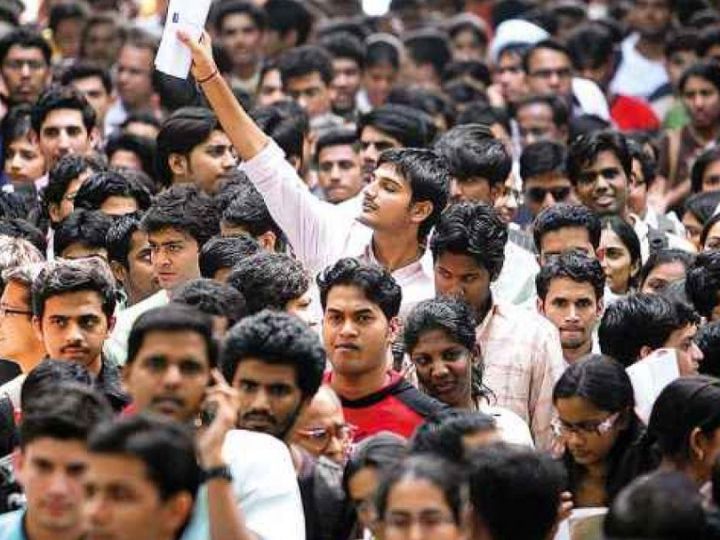Unemployment or Unemployability? What is the root cause of the current economic situation in the country? What is the real issue that is causing the increase in the number of jobless youth? The issue is vast and has grown to become a major area of concern.
Despite the modernisation of educational institutions and tech-savvy academic institutions, about one in four young Indians is running from pillar to post in search of employment. This is the problem the country is struggling to solve – despite the government's focus on startups and flagship programs like Digital India, Skill India and Make In India.
Former World Bank chief economist Kaushik Basu recently said India's big challenge is unemployment and joblessness as youth unemployment in India is over 24 per cent, which is among the highest in the world. He cited the reasons behind the issue, “The rise in divisiveness and polarization in Indian society is sad not just in itself, but because it is damaging the foundations of the nation's growth.” He said India has strong fundamentals – a large entrepreneurial class, highly skilled workers, and though it has been falling over the last few years, a high investment to GDP ratio.
The latest edition of ‘Checks and Balances’, an online discussion hosted by Sweta Ranjan in which experts debate governance issues, takes up the question of what is behind the unemployment numbers.
Prof Sibaram Khara, Vice-Chancellor, Sharda University, says that a wide disconnect can be observed between education and acquiring skills. He says, “Until a few years ago, employable graduates were lagging in certain technical as well as professional skills. Skills should be there so that students are employable and they should contribute in their professional field.”
Prof Khara suggests that recruiters prefer candidates with high learnability, adaptability and scalability. He says, “Those who are not skilled are not getting employed, not necessarily they will be sitting idle, they have to compromise with certain low-level jobs. A few years ago also, some initiatives were taken to promote skill-based education and project-based learning. Startups and entrepreneurship attitude and initiative also need to be inculcated in higher education institutions.”
Senior Journalist Deepak Sharma points out, "When the Modi government took over, the focus was to promote production in the country along with creating opportunities for employment on a big level. Two major initiatives taken in this direction were Make In India and Digital India. Recruitments are not happening, for the last three years, no recruitment has happened in the defence sector. In the BJP-ruled states, no recruitment [has happened in] police. In the Indian railways, one of the largest employers, the doors are closed for recruiting 70,000 people. There is a lack of expertise in the government.”
Sharma cites examples, “Let's take the example of the Reserve Bank of India Governor. When the country is struggling to ward off inflation and the economy is plummeting, the Governor of RBI is a bureaucrat whose subject [of expertise] is History. [Finance minister Nirmala Sitharaman] was not an economics student … she does not have an economics background or experience."
He continues, “We are not taking the services of the best available talents of economists in the world, who have their roots in India. The economic advisors or the officials of the Finance Ministry are loyal to the government but they lack the talent to fight the issue of inflation and unemployment. Modi Ji tried hard to sort out the issue through Skill India and MSME. Kalraj Mishra was given responsibility initially, then Nitin Gadkari was brought in, and then Rane was given responsibility. Even in Skill India Rajiv Pratap Rudy was given responsibility but ideas have been lost somewhere.”
According to the CMIE data, in April, unemployment was highest in Haryana, followed by Rajasthan and Bihar. Krishna Chandra Bajpai, former professor, BIT Patna, states, “The regular institutions are showing irregularity in teaching methods. Things will not work out till the time they do not correct this. We need to firstly learn whether we wish to be a job seeker or a job giver.”
BJP MP Varun Gandhi recently raised the issue of unemployment, saying that over 60 lakh sanctioned central and state government posts are vacant in various sectors when unemployment is at its highest level. Abbas Haider, national spokesperson, Samajwadi Party, “The total job loss in the country in the last 7-8 years is more than 12 crore. If employment is provided to these 60 lakh people, they will further provide jobs to many more people like a driver or a maid.”
What is the reason behind the gap between education and skill acquisition? A cultural focus on academic learning and professional qualification is prevalent in India. Close to 60 lakh students graduate every year in several disciplines, yet these job-seeking graduates are not deemed fit for employment.
The data suggests that over 70% of these graduates lack basic employable skills and quality. Prof Khara suggests, “Recently we have seen the government is focusing on many things that may help to tackle the issue. One such development is India’s decision to give the semiconductor industry the much-needed priority, and produce more and more defence indigenous equipment. This may make the country self-reliant.”
DISCLAIMER: "This is a sponsored feature and provided by Governance Now."


